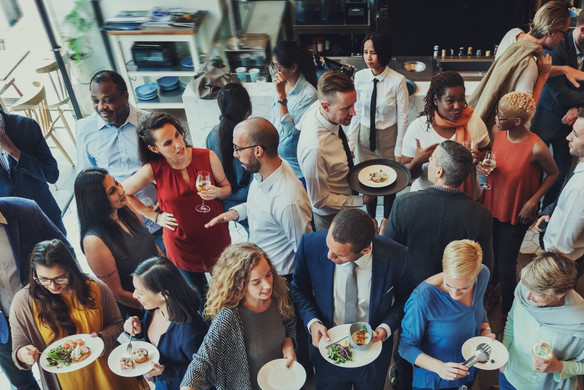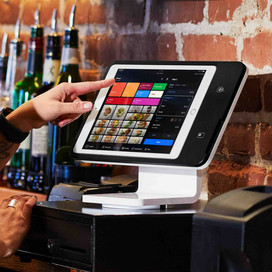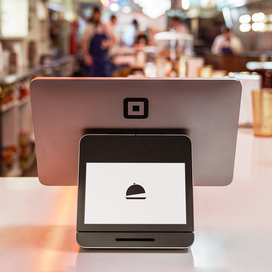Table of contents
A night out is something special, and it should always feel that way. Customers return to your restaurant with their hard-earned cash, time after time, not just for the food and drink but because of the experience you sell them. One easily overlooked way to drive up customer satisfaction — and the revenue it brings — is by doubling down on the centrality of that experience with special events.
Last year 44% of customers bought something outside their standard meals at restaurants. This year that number is expected to increase by 10%. The Square 2023 Future of Restaurants report found that, on average, restaurants make 21% of their revenue outside their core offerings, with products and services such as retail items, classes, and events. Eighty-eight percent of restaurants plan to expand these offerings in the next year. With customers open to paying for more experiences from restaurants, here’s what you need to know to get in on the special event game.
Classes, cuisines, and celebrations: Choosing the right event
An event at your restaurant should reflect its personality, strengths, and clientele. Below are a few types of events to start the creative wheels turning, but don’t let these limit you in planning a unique and memorable night for your guests.
Theme nights
Theme nights are a great way to inject personality into the dining experience. Themes can vary from a current holiday or sporting event to an evergreen option, such as tropical escape night or a Roaring ’20s party. Simple festive elements like themed decor, attire, music, or a special event menu can transform your venue and transport your guests to a faraway time or place.
Culinary tours
One of the greatest gifts of a restaurant is the ability to offer diners access to foods and concoctions they’re unlikely to experience at home. Foodies and fine diners alike will love the opportunity to sample culinary delights from a limited-event tasting menu.
This can also serve as an educational experience. Give it the flavor of a special cooking class, with a chef or other host to inform diners about the dishes they’re trying and how they’re prepared.
As a bonus, a special menu or tasting event gives your kitchen team a chance to have fun, to be creative, and to challenge themselves to discover new top-notch offerings.
Mixology mixers
Much like a dinner tasting menu, a beer, wine, or liquor tasting event gives guests the opportunity to sample new and intriguing tastes. To add an educational twist, your event can tap into guests’ inner sommeliers or ciceroni with lessons on pairings, pourings, and other nuances of beverage expertise. Your top bartenders likely have at least a few tricks (and cocktails) up their sleeves to teach curious consumers.
Best practices for planning your restaurant event
A great event can bring in a surge of revenue, build customer loyalty, and introduce new visitors to your brand. However, a hastily organized night may cost your establishment money, drive away new business, or leave a bad taste in customers’ mouths — literally. Before opening your doors on the big night, consider a few best practices to ensure your event is delightful for attendees and lucrative for your business.
Making it special
Remember, you’re creating a premium experience for your loyal patrons. The last thing you want is for guests to feel like they paid extra for an ordinary night. The setting, offerings, and atmosphere should blend to create a one-of-a-kind experience. Focus on putting together something that attendees will remember for a long time and be excited to tell their friends about.
Planning the logistics
Be sure to involve your key team members in planning and preparing for the event’s logistics. Depending on the nature of the event — and how far it wanders from your traditional day-to-day business operations — you may need to plan ahead for additional staffing or resources on the day.
Set expectations with team members for the event. How will the day differ from their usual workday? What can they expect? Setting the stage in this way will help everything run more smoothly.
Getting the word out
Filling the room is one of the core pillars of success for your event. Build excitement and awareness for your event through all your available marketing channels, such as social media, email lists, traditional advertising, or physical posters around the venue and nearby areas. Start early and be loud to drive up demand, build excitement, and aim for a sold-out event.
Monetizing the event
While a delightful customer experience should drive your approach to planning an event, the goal is still to create something that will drive revenue to your business. Consider how you will monetize your event:
- Will it be a ticketed event? A prix fixe menu or à la carte offerings?
- Do you plan to upsell guests on further refreshments or merchandise?
- What are the expected costs of the event, and how will the projected income offset them?
The ideal monetization strategy will inject your business with fresh income and leave customers confident they got their money’s worth.
Putting a premium on experience
Special events, classes, and parties are a great way to wow your customers and build your business’s loyal base while earning crucial revenue. There are countless ways to put on an event, but try to focus on what best suits your brand, venue, team, and customers. With a bit of creativity, strategy, and the right tools, your business can host a magical night that your customers (and your bottom line) won’t soon forget.
Square has a number of partners that can plug in easily to your restaurant POS to help organize, plan, and monetize your next event. Get started here.
![]()













